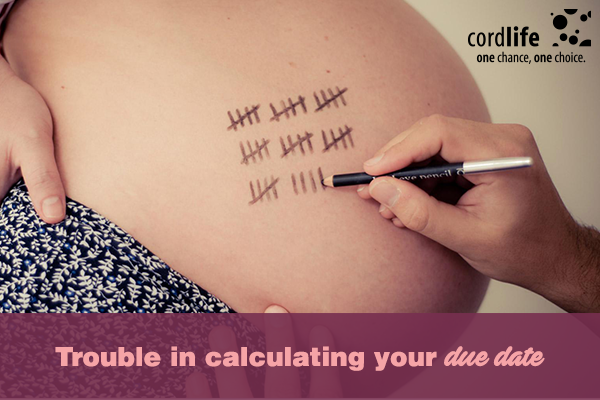Table of Contents
Are you getting confused about your due date? Do not worry when you know the date of conception of your baby. By knowing the conceiving date, you will be able to calculate your estimated due date. Your physician will start asking questions at your first your prenatal examination for predicting your due date as accurately as possible.
Your due date for pregnancy is usually 280 days (40 weeks) from the first day of your last period. The day you deliver your baby is probably not your estimated due date, but a time frame can be helpful. Knowing the due date of your baby will help your provider more accurately monitor your baby’s growth. Since certain laboratory tests change during your pregnancy, knowing a precise due date will also enable your provider to better track these tests and manage preterm labor if they occur.
A full-term pregnancy varies between 37 weeks and 40 weeks and 6 days. It can be difficult at first to work out how to count your pregnancy in weeks and months, because when we measure your pregnancy from the beginning of your last period, your baby is actually two weeks younger than the start date of pregnancy, otherwise known as the “gestational age.” So, when your doctor says you’re pregnant for four weeks, the gestational age of your baby is actually two weeks. Your actual delivery date may differ from your estimated delivery date, which is sometimes referred to as the estimated delivery date or EDC. There are actually a very small number of babies born on their due dates. Normally 5% of women is able to deliver on their due date.
Your doctor can provide you with an exact knowledge of your due date during your ultrasound scan, which is done at 12 weeks. A dating scan will normally take place between 10-14 weeks pregnant. During the scan, the radiologist will examine how well your baby is developed and measure the length of your baby from the head to the bottom, which helps to give you an EDD (estimated due date) based on how far you are during pregnancy. They will also check that you only expect one baby and not two and your baby develops in the right place.
You also need to know about Trimester, which means “three months,” so that your pregnancy is divided into three trimesters. Your first quarter will be thirteen weeks and six days from conception. Your second quarter is between 14 weeks and 27 weeks and six days. Your third quarter is from 28 weeks to birth.
In pregnant women, anxiety about the due date is a very normal feeling. The due date provided by the doctor usually provides an approximate time frame for all baby delivery preparations. The weeks, months or trimesters are used to quantify the pregnancy stage and you can choose any method you find convenient.
